How to Get Rid of Mealybugs Indoors – 5 Easy Organic Controls to Zap Houseplant Infestations
They may look like bits of fluff, but mealybugs are a major problem for indoor plants. If you see them, use these 5 expert-backed organic methods to curb infestations and keep plants thriving

Janey Goulding
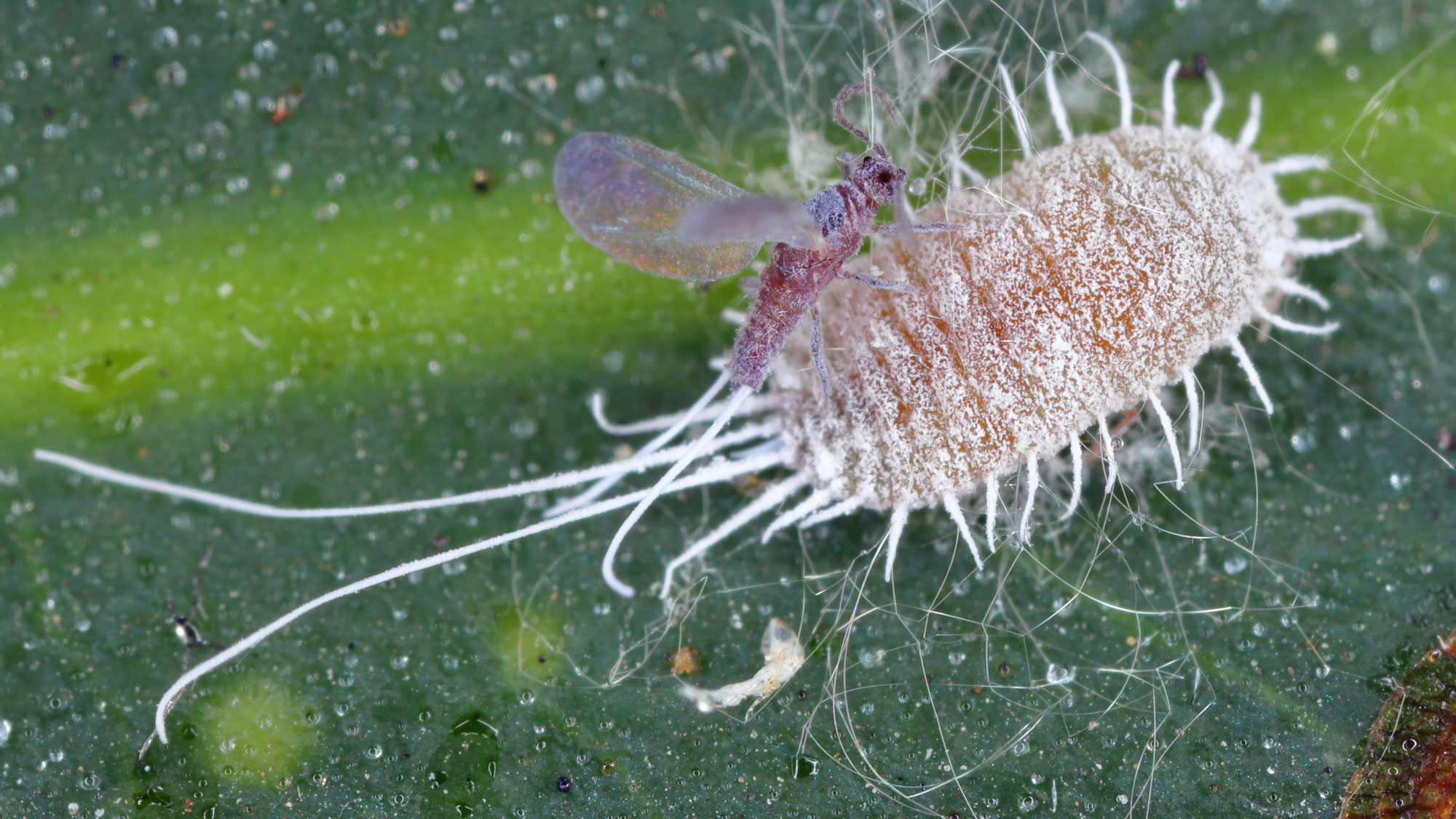
If you grow houseplants, you’ve probably come across mealybugs. Your first warning is going to be white fluffy spots on plant leaves and joints – cottony masses that are usually followed by ominous waxy secretions. Hundreds of species belong to this category of pests that feed on plants. Despite their miniscule size, they have the potential to wipe out your favorite plants in relatively short order.
While not necessarily the most common houseplant pest, they can be a major issue on houseplants and in greenhouses, as they love warm environments. You can also get mealybugs on plants outdoors (common in warm climates). If you’re a concerned houseplant and indoor plant parent wondering what to do about those fluffy blobs, take heart – these simple organic controls can help. From kitchen-cupboard cures to organic oils, here’s how to get rid of mealybugs on plants indoors.
What Are Mealybugs?
Mealybug insects are waxy, soft-bodied insects. For anyone who’s started houseplant troubleshooting, these pests are related to another common pest, scale. While scale insects have no legs and generally stay in one place as adults, mealybugs do have legs and can move around on plants, albeit slowly.
There are thousands of species of mealybugs (in the family Pseudococcidae) and many are pests of household plants. These insects are sap-suckers, which means they use piercing mouthparts to suck the juices out of plants. For anyone concerned about keeping houseplants healthy, one or two mealybugs on a plant may not cause much damage if caught quickly. However, they can infest plants if left unchecked. As they multiply, mealybugs can stunt growth, and can eventually cause enough damage to kill plants.
Citrus mealybug is one of the most common types you might see on your plants. They feed on citrus plants but also many common houseplants, like jade, poinsettia, coleus, croton, and others. Other mealybug species, like cactus mealybug, have more specific host plants.
Identifying Mealybugs
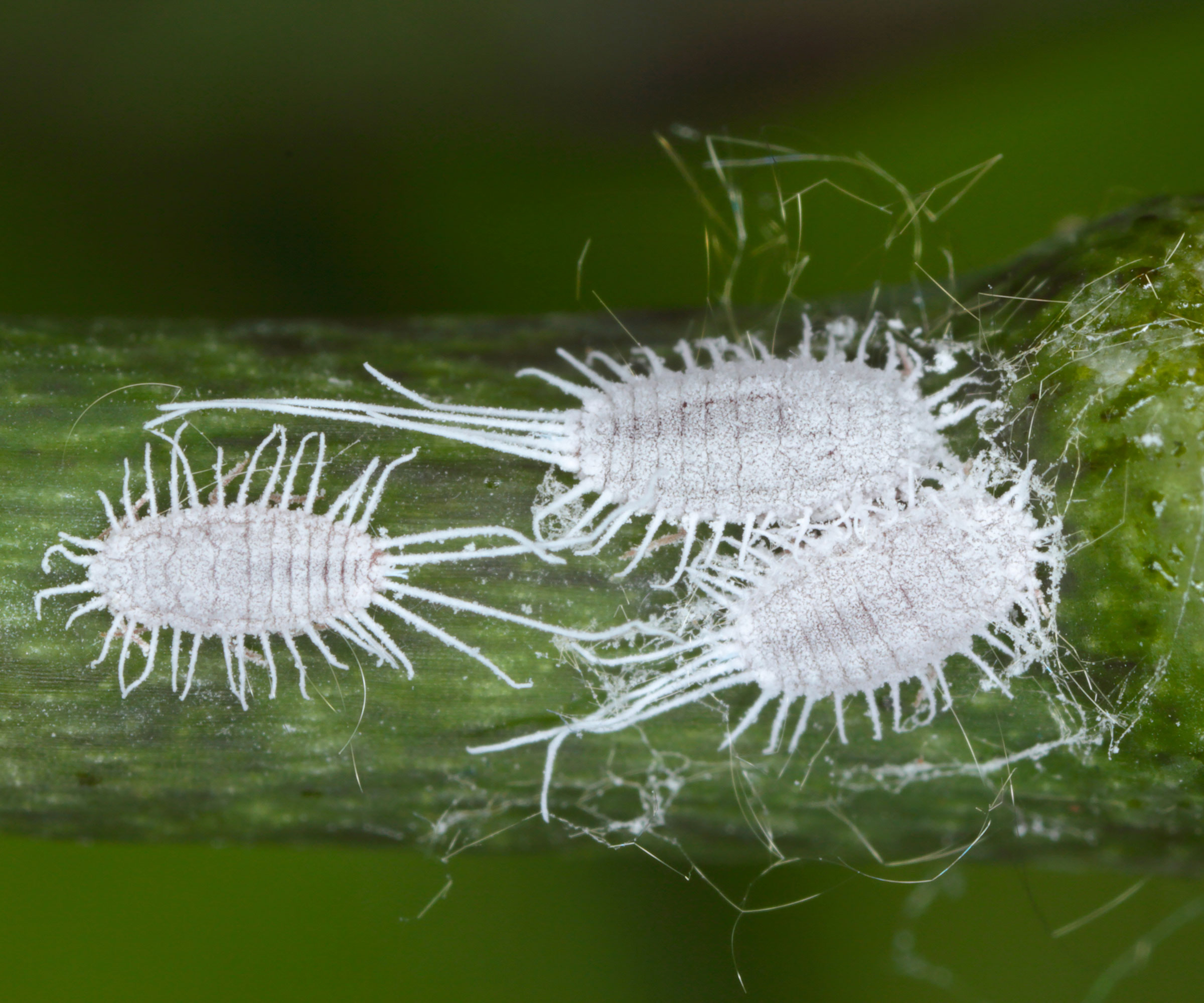
Mealybugs are easy to identify. These small, white, oval-shaped insects have a waxy, cottony appearance. They don’t move fast and cluster on leaf veins, on the undersides of leaves, and in the joints of leaves and stems. Don’t confuse mealybugs with woolly aphids or cottony cushion scale. While these pests look similar, mealybugs are more segmented.
Some species, like the root mealybug, live under the surface, so it might be worth checking the roots of your plant. These mealybugs appear as white fluffy patches on the rootball. If your plant looks wilted, despite regular watering, then it might be because of a subterranean infestation.
Sign up for the Gardening Know How newsletter today and receive a free copy of our e-book "How to Grow Delicious Tomatoes".
Mealybugs leave a white, cottony material on leaves. They also excrete honeydew, a sweet substance that leaves a sticky residue. If an infestation is significant, you might also see ants and mold. The honeydew attracts ants, and this can trigger a black mold (sooty mold) infection.
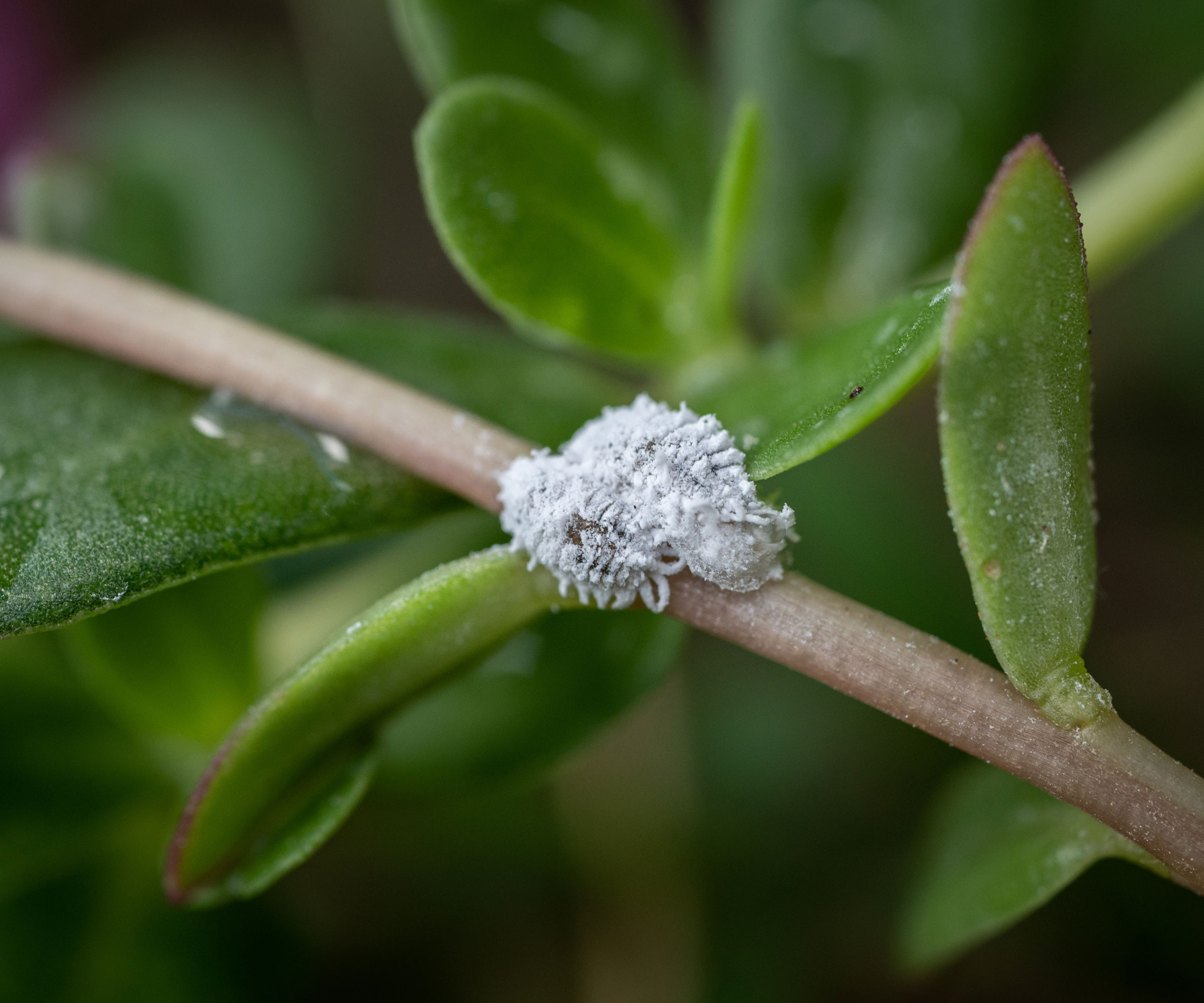
How to Get Rid of Mealybugs
It’s best to deal with mealybugs as soon as you see them as serious infestations can be difficult to manage. Many people unwittingly bring mealybugs indoors on houseplants that have spent the summer outside. Once inside, they thrive in the safe, warm indoor environment, and an infestation can erupt quickly.
The first step in managing mealybugs is to inspect houseplants carefully for pests before bringing them back indoors for the winter. However, if you have spotted them on your houseplants already, all is not lost. The following organic strategies can help you to tackle mealybugs before they spread to your entire houseplant collection. Treat your plant at least 3 times, a week apart, to catch newly hatched nymphs.
1. Water Pressure
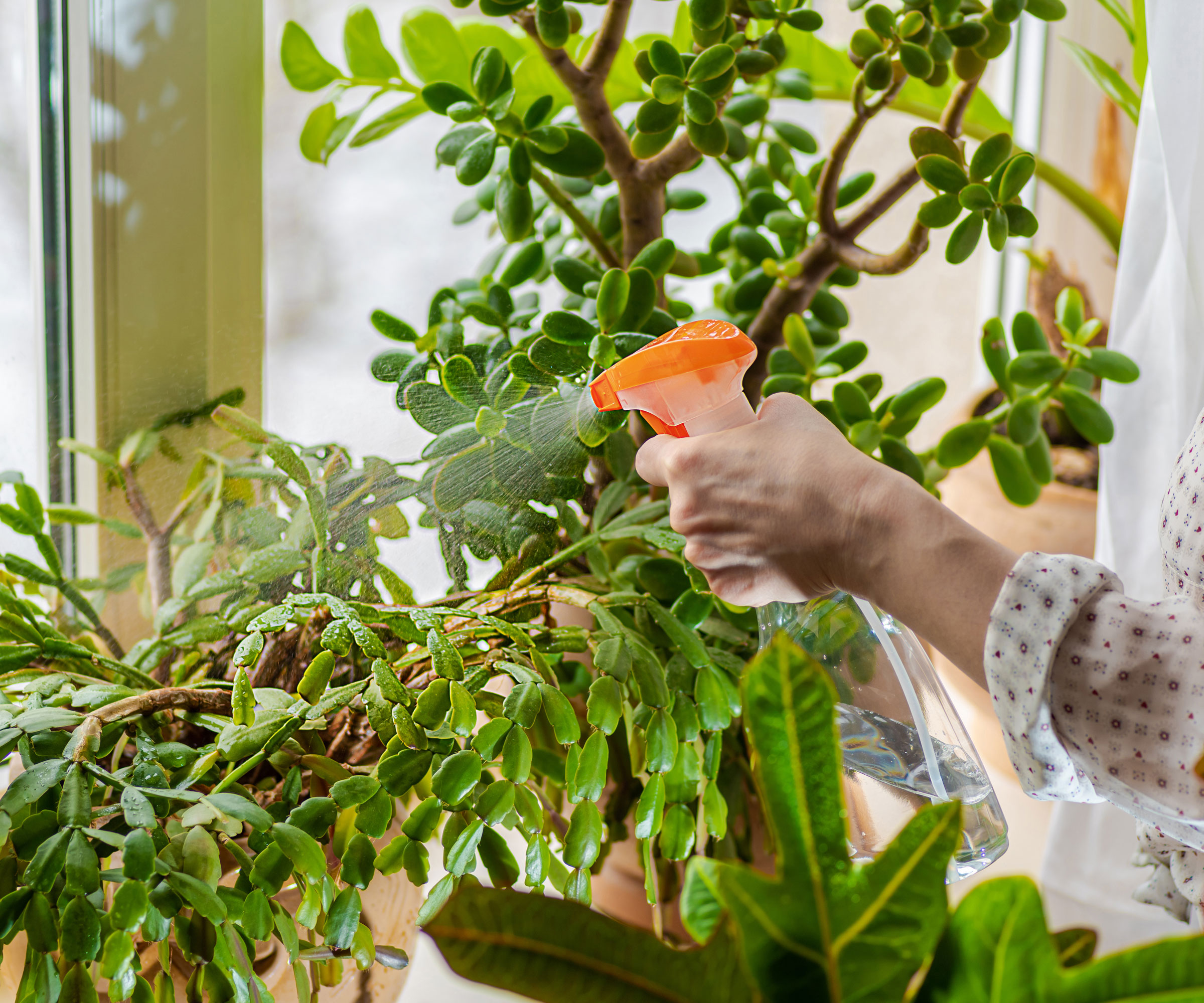
A forceful stream of water is the best first line of defense for early-stage infestations and "crawlers" (young nymphs). This physically dislodges the insects and washes away the sticky honeydew that leads to sooty mold. A blast of water pressure is ideal for sturdy plants like philodendrons or dracaenas. However, avoid it on delicate, fuzzy-leaved plants like African violets, which can develop rot if the foliage stays wet.
A stream of water should be sufficient for a small infestation of mealybugs. Use the sink for smaller potted plants or the bathtub or shower for bigger plants. Use a continuous mist sprayer or a kitchen sink attachment for precise control. You can buy a Hibbent Sink Sprayer Attachment from Amazon.
2. Isopropyl (Rubbing) Alcohol
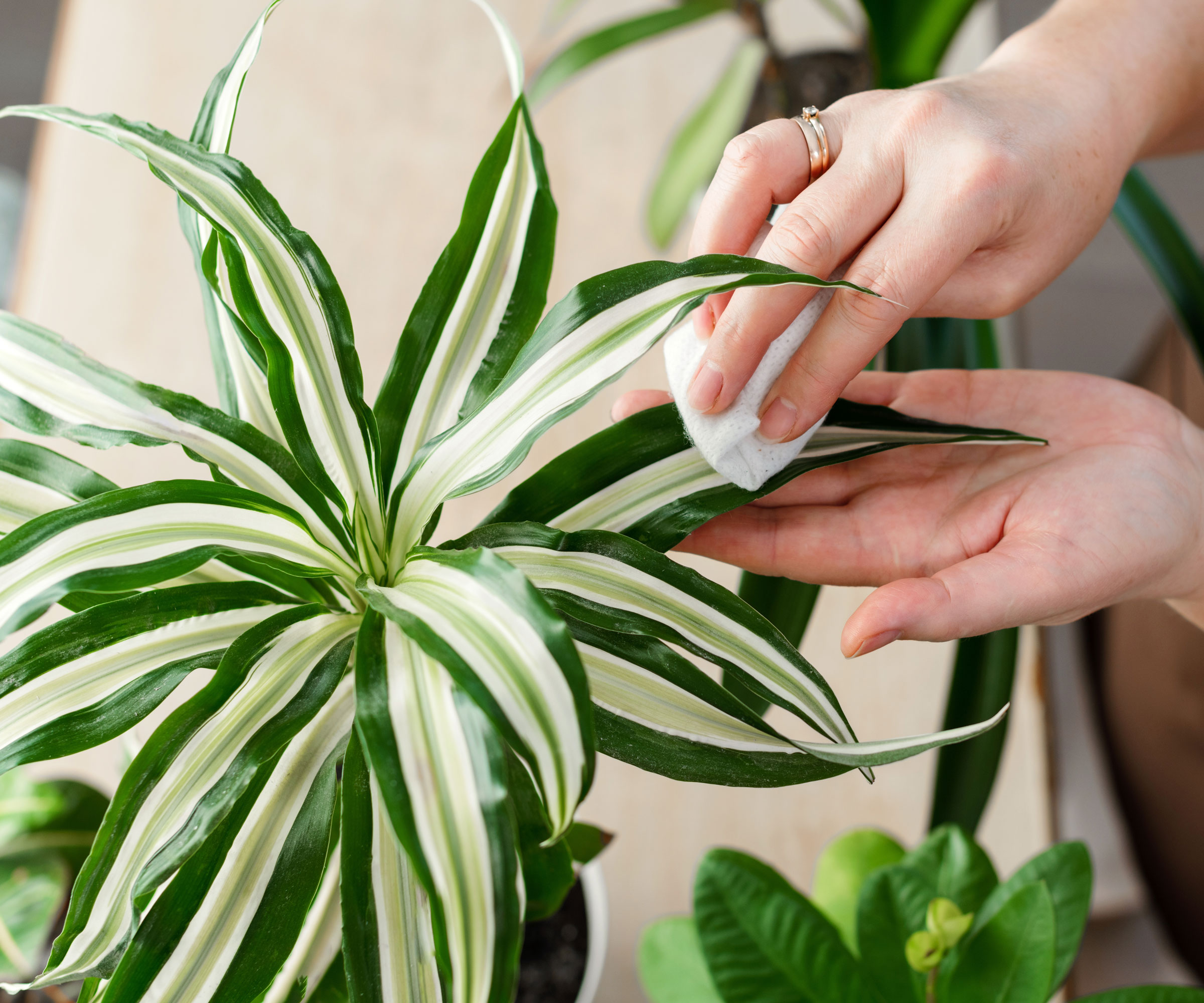
Alcohol is most effective for targeted spot treatment of adult mealybugs. It works by dissolving their protective waxy coating, causing them to dehydrate instantly. Wipe affected leaves with a 70% solution on a cotton swab. You can buy Medline Isopropyl Rubbing Alcohol from Amazon.
This is the safest method for succulents like jade or echeveria, which might be sensitive to heavy oils. Always do a 24-hour patch test on a single leaf to ensure the alcohol doesn’t burn the leaf cuticle.
3. Insecticidal Soap
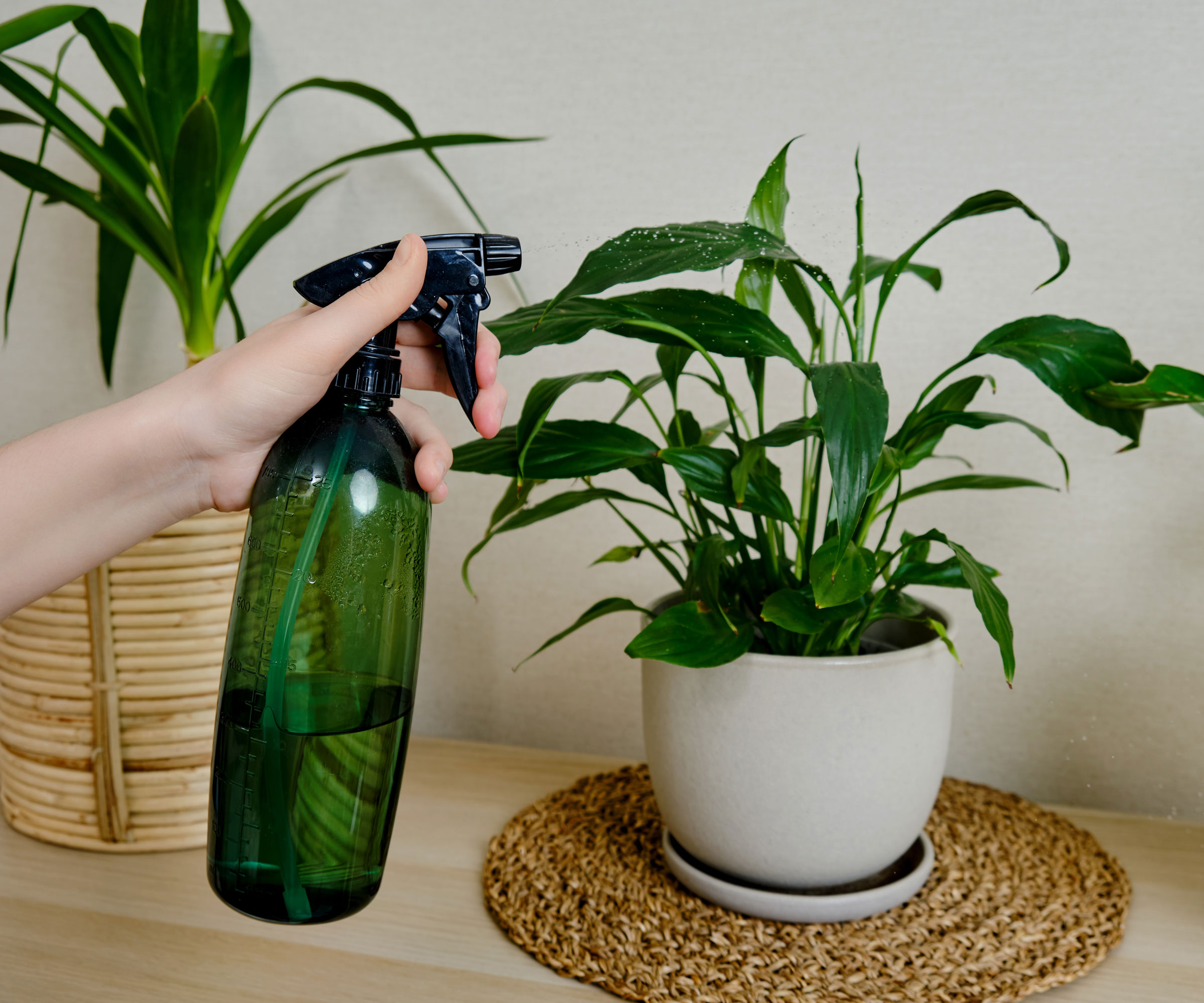
These soaps contain potassium fatty acids that penetrate the soft shells of mealybugs. They are highly effective during the nymph (crawler) stage, when the waxy shield is thinnest. Unlike DIY dish soaps, which can sometimes strip the natural oils from a plant, commercial insecticidal soaps are formulated to be phytosafe.
You can buy Safer Insect Killing Soap Concentrate from Amazon, as an OMRI-listed organic option. Alternatively, make your own solution from a teaspoon of dish soap mixed into a gallon of water. Spray the solution all over the affected plant every week, including the undersides of leaves and leaf axils, until the infestation is resolved. Buy Pure Castile Dish Soap from Amazon for homemade solutions.
4. Neem Oil
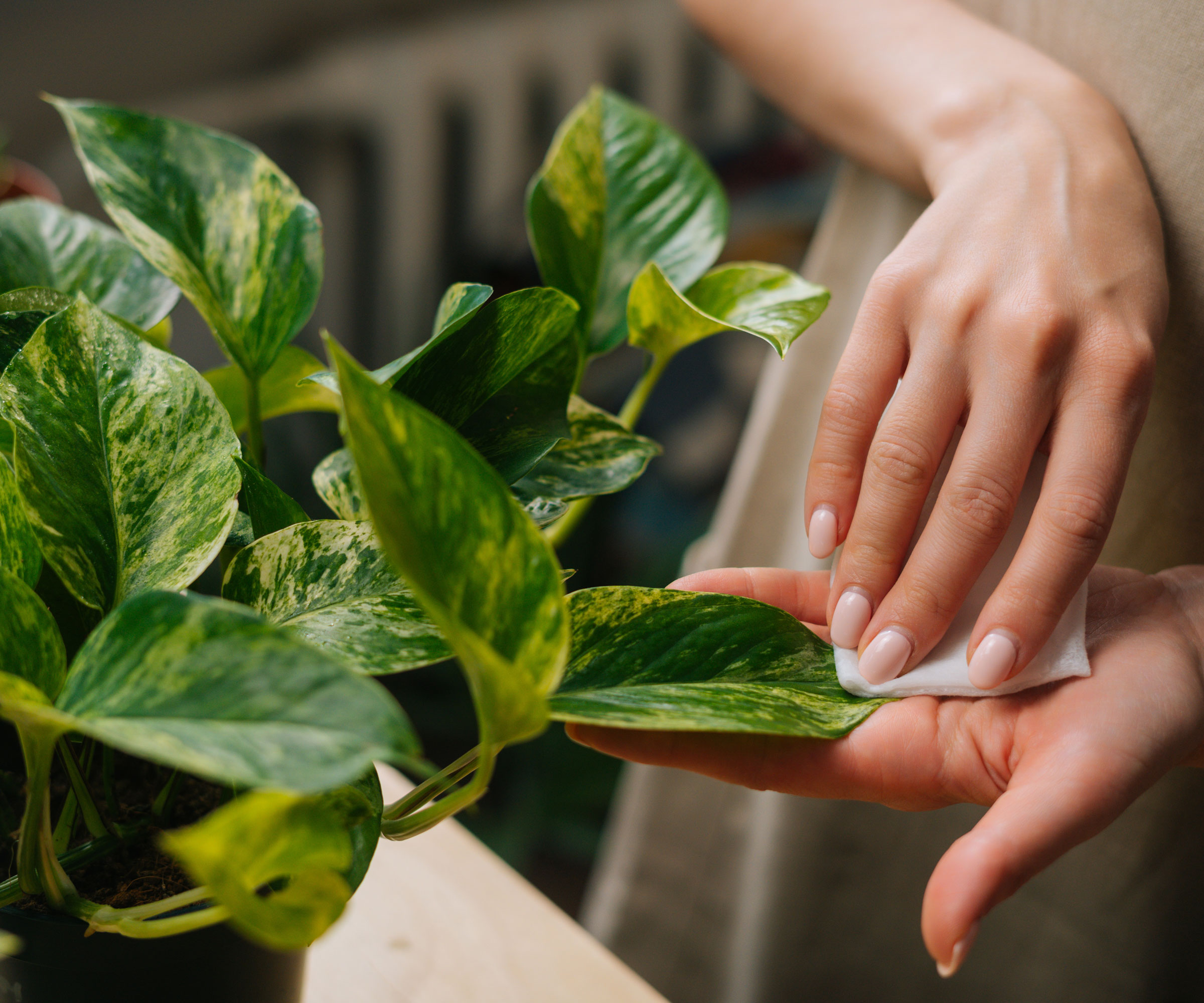
Neem oil is a plant powerhouse, because it acts as both a miticide and a systemic repellent. This organic insecticide contains azadirachtin, which interferes with the insects' hormonal systems, preventing them from feeding or maturing. It is best used for persistent infestations or as a preventative. You can buy Bonide Captain Jack’s Ready-to-Use Neem Oil Spray from Amazon.
If you want to make your own neem sprays, mix one tablespoon of the oil with one tablespoon of dish soap in a gallon of water. Apply it to your plant once a week until you no longer see mealybugs. Neem oil is safe to use, even on edible plants. However, because it can make leaves sensitive to light, you need to keep treated plants out of direct afternoon sun for 24 hours to prevent foliage scorch occurring.
5. Homemade Garlic & Pepper Spray
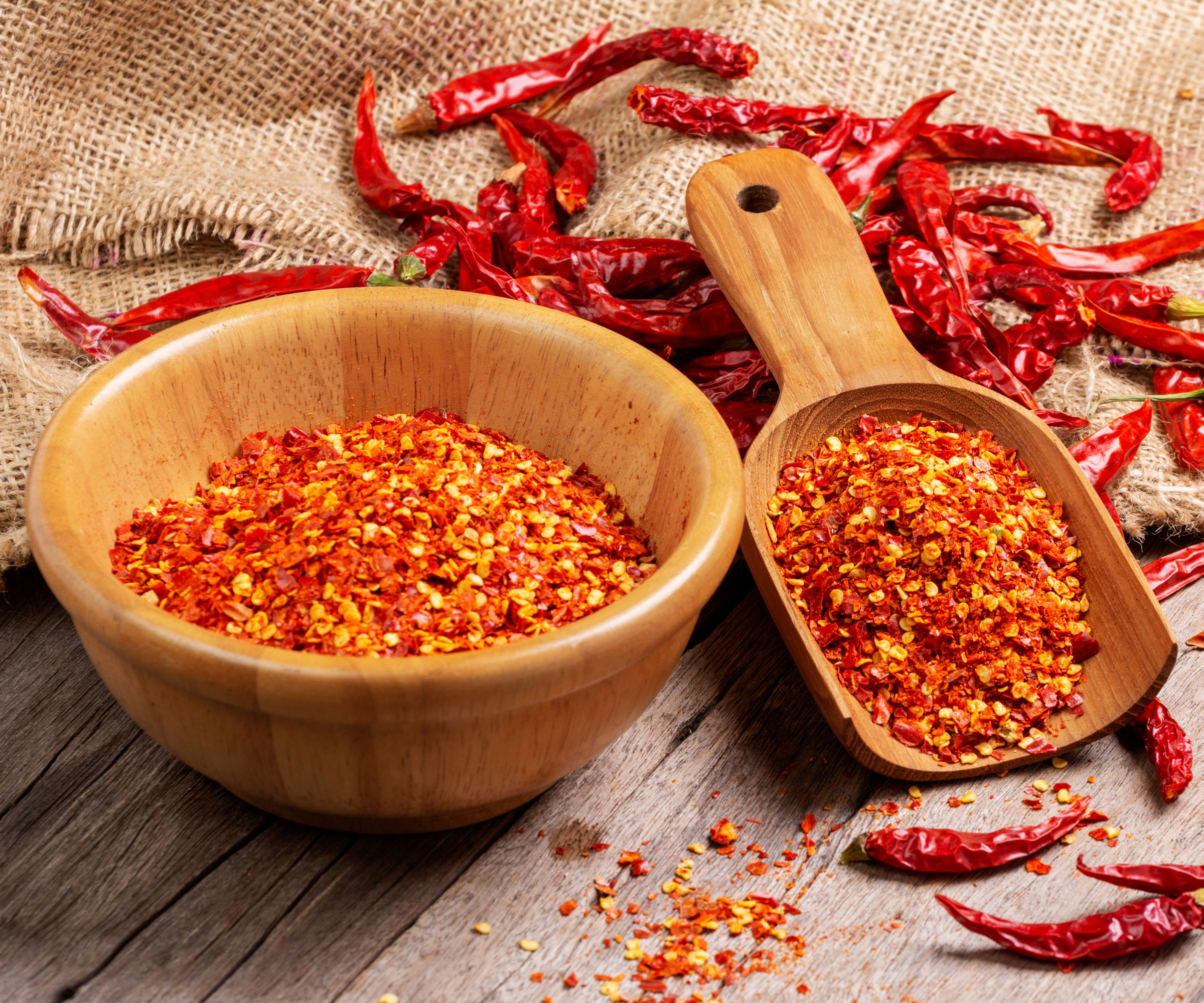
This botanical cocktail acts as a potent repellent and irritant. The sulfur in garlic and the capsaicin in pepper create an inhospitable environment for mealybugs. It is especially good for organic vegetable starts or herbs growing indoors. Be aware that this mixture can be irritating to human eyes and skin. So always wear gloves when straining and spraying, and use it in a well-ventilated room.
Make your own homemade recipe by blending up a bulb of garlic, a small onion, and a spoonful of cayenne pepper. You can buy Organic Cayenne Pepper Powder from Amazon. Mix the blend into a quart of water and let it steep for a day or more. Strain it through a fine sieve or cheesecloth, add a spoonful of dish soap, and use the mixture to spray on affected plants. Repeat every few days until things clear up.
Do’s and Don’ts of Mealybug Control
There is no real “one size fits all” policy for managing pest numbers. Your best line of defence needs to be a multi-pronged one which deploys several of these organic strategies. However, bear the following in mind when tackling mealybugs:
- DO quarantine any new plant arrivals for at least two weeks before introducing them to your collection.
- DO clean the pot, saucer, and even the nearby windowsill with a mild bleach or alcohol solution, as eggs can hide in cracks and crevices.
- DO check the nooks and crannies of houseplants, like the tight V where a leaf meets the stem. This is a mealybug’s favorite hiding spot.
- DON'T use high-nitrogen fertilizers during an active infestation. Mealybugs love the succulent new growth that nitrogen produces.
- DON'T apply oils or soaps if plants are water-stressed (wilting) or in temperatures above 90°F (32°C), as this can damage plant tissue.
- DON'T give up after a single treatment. Persistence is the only way to beat their life cycle. Apply any treatments at least 3 times.
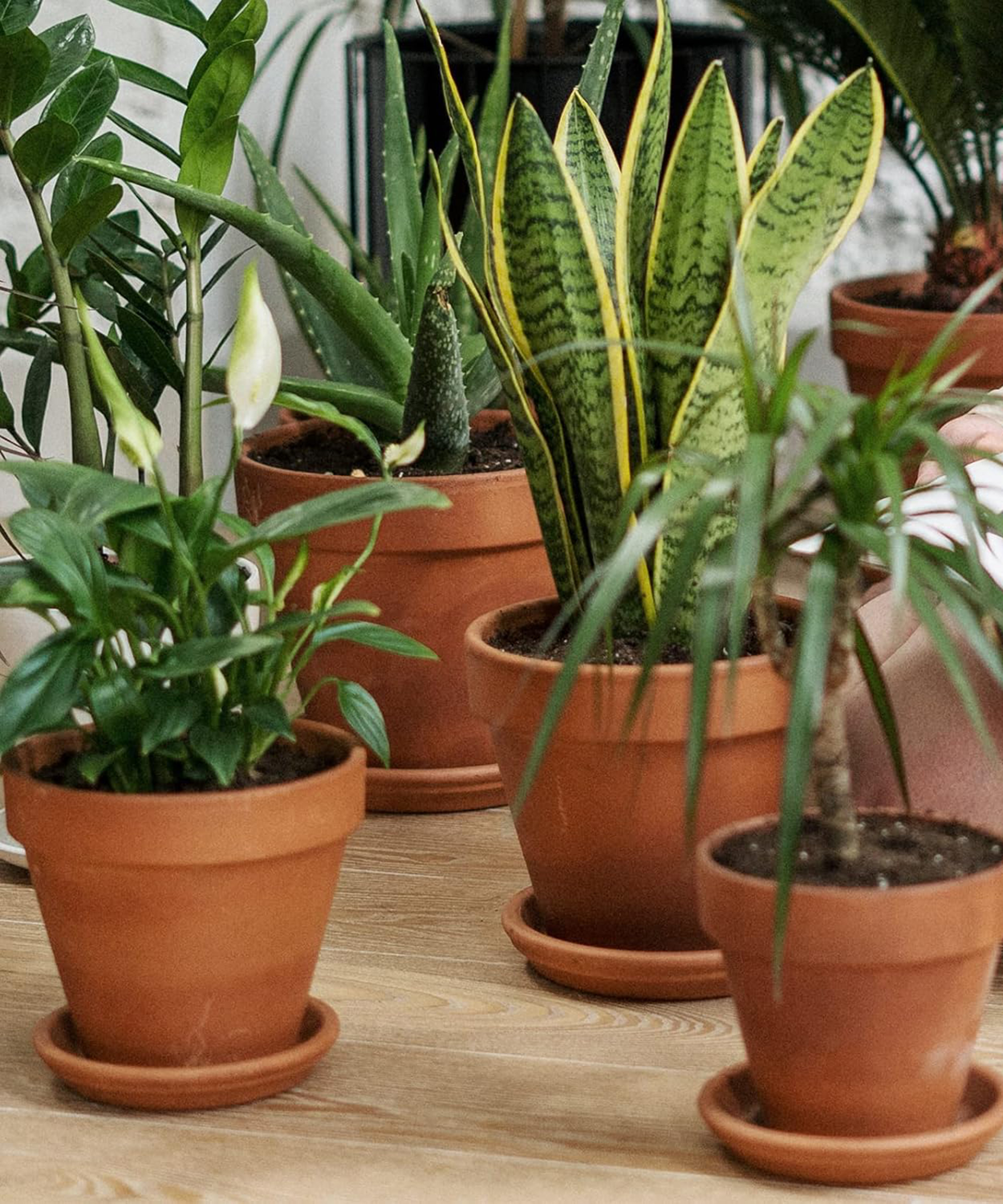
Frequently Asked Questions
What causes mealybugs on houseplants?
Mealybugs are drawn to warm places and are fond of plants with soft growth. Certain species have their own favorite houseplant: indoor citrus trees are particularly susceptible. Overwatering and overfeeding can make houseplants more vulnerable, so maintaining good watering and fertilizing routines will help reduce the appearance of mealybugs. Healthy plants are less at risk than those that are stressed or struggling.
How do I tackle mealybugs outdoors?
Outdoors, natural factors like predators can keep mealybug numbers in check. You can introduce beneficial preparatory insects like lacewings and parasitoid wasps to manage mealybug numbers outdoors (but don’t do this with indoor infestations). If you see ants trailing up your outdoor plants, you likely have mealybugs (or aphids). Ants actually protect mealybugs from predators in exchange for the honeydew they secrete. To control mealybugs outdoors, you often have to control the ants first, by using organic baits or sticky barriers.
Need more ideas for timely gardening jobs and seasonal expert advice delivered straight to your inbox? Sign up for the free Gardening Know How Newsletter!

Mary Ellen Ellis has been gardening for over 20 years. With degrees in Chemistry and Biology, Mary Ellen's specialties are flowers, native plants, and herbs.
- Janey GouldingContent Editor